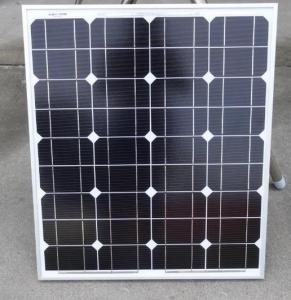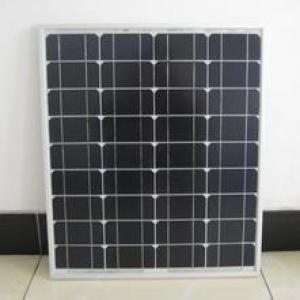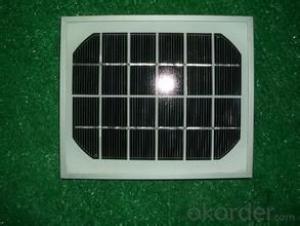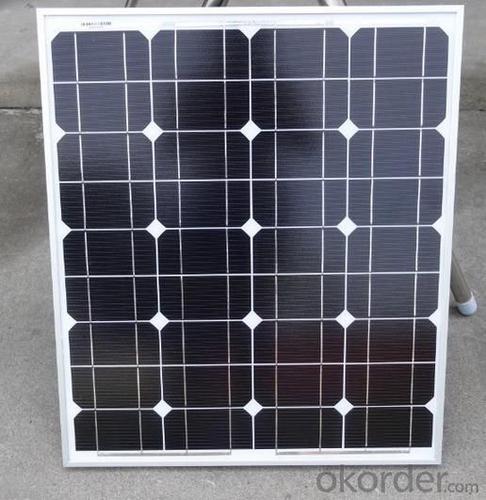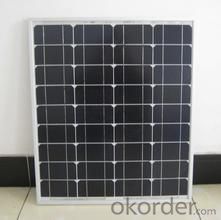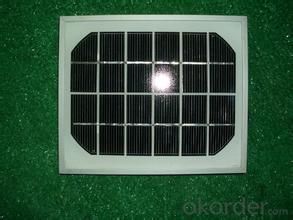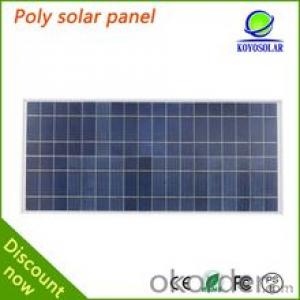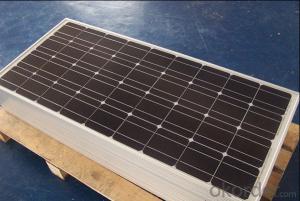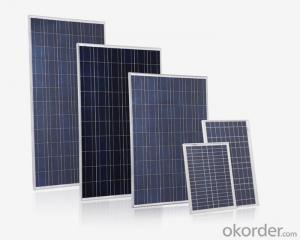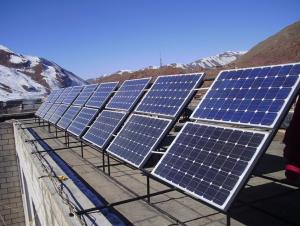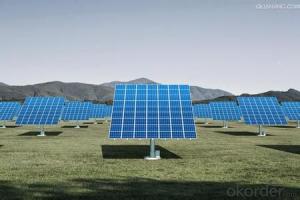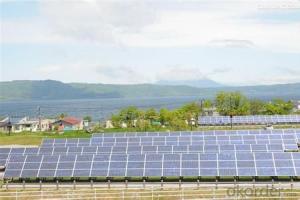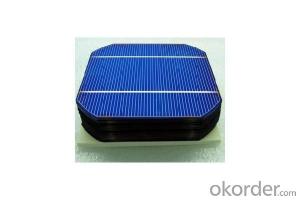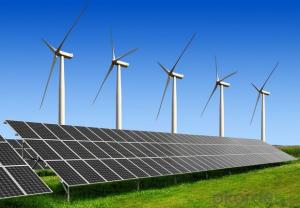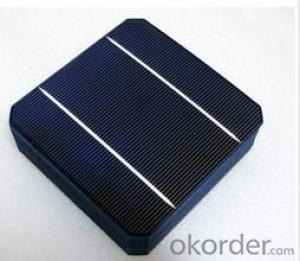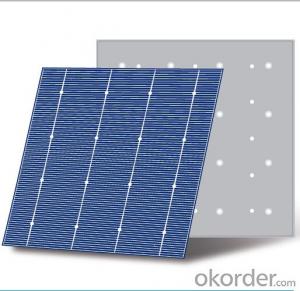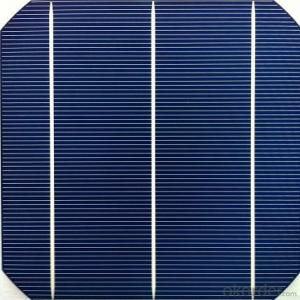Shingled Solar Cells - Super Quality Monocrystalline Silicon Solar Cell Price
- Loading Port:
- China main port
- Payment Terms:
- TT or LC
- Min Order Qty:
- 10000 m²
- Supply Capability:
- 10000 m²/month
OKorder Service Pledge
OKorder Financial Service
You Might Also Like
| Quick Details | |||||
| Place of Origin: | Model Number: | 2W-315W | |||
| Material: | Monocrystalline Silicon | Size: | Customized dimensions | Number of Cells: | 36/72 |
| Max. Power: | 3W-315W | Certificate: | TUV/IEC61215/IEC61730/CEC/CE/PID/ISO | Color: | Customized |
| Application: | Home,Commercial,Industrial | Warranty: | 25 years | Connector: | MC4 or to what you need |
| Frame: | Firm Aluminum | Glue: | EVA | Surface Glass: | Tempered Glass |
| Transform efficiency: | 18%~19% | Solar Cell: | A Grade 156x156mm Solar Cell | ||
| Packaging & Delivery | |||||
| Packaging Detail: | 1. carton box and pallet 2.According to your requirement/Suitable for shipment | ||||
| Delivery Detail: | 1.15~20 working days after received deposit 2.Based on Qty | ||||
| Specifications | |||||
| 1.100% A grade cell | |||||
| 2. OEM available | |||||
| 3. Super quality competitve price | |||||
| 4. International Standard | |||||
| 5.25 years warranty | |||||
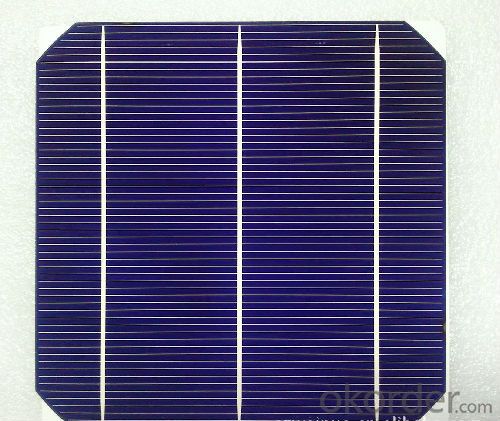
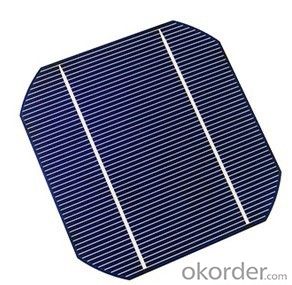
FAQ
We have organized several common questions for our clients,may help you sincerely:
①what price for each watt?
it depends on the quantity, delivery date and payment terms,
②what is your size for each module? can you tell me the parameter of your module?
we have different series of panels in different output, both c-si and a-si. please take the specification sheet for your reference.
③Can you provide the peripheral products of the solar panels, such as the battery, controller, and inverter? If so, can you tell me how do they match each other?
Yes, we can, we have two companies for solar region, one is CNBM International, the other is CNBM engineering Co.
We can provide you not only the solar module but also Solar Cells, the off grid solar system, we can also provide you service with on grid plant.
④What is your warranty system?
Our product performance guarantees for 25 years
• 12 years guarantee for workmanship
• Timeliness of delivery
• Quality Products certified (TÜV, UL, CE, ISO)
⑤How do you pack your products?
We have rich experience on how to pack the panels to make sure the safety on shipment when it arrives at the destination.
⑥ Can you do OEM for us?
Yes, we can.
⑦How long can we receive the product after purchase?
In the purchase of product within three working days, We will arrange the factory delivery as soon as possible. The pecific time of receiving is related to the state and position of customers. Commonly 7 to 10 working days can be served.
How Silicon Makes a Solar Cell
When energy is added to pure silicon, in the form of heat for example, it can cause a few electrons to break free of their bonds and leave their atoms. A hole is left behind in each case. These electrons, called free carriers, then wander randomly around the crystalline lattice looking for another hole to fall into and carrying an electrical current. However, there are so few of them in pure silicon, that they aren't very useful.
But our impure silicon with phosphorous atoms mixed in is a different story. It takes a lot less energy to knock loose one of our "extra" phosphorous electrons because they aren't tied up in a bond with any neighboring atoms. As a result, most of these electrons do break free, and we have a lot more free carriers than we would have in pure silicon. The process of adding impurities on purpose is called doping, and when doped with phosphorous, the resulting silicon is called N-type ("n" for negative) because of the prevalence of free electrons. N-type doped silicon is a much better conductor than pure silicon.
The other part of a typical solar cell is doped with the element boron, which has only three electrons in its outer shell instead of four, to become P-type silicon. Instead of having free electrons, P-type ("p" for positive) has free openings and carries the opposite (positive) charge.
With electricity prices rising everyday, homeowners are looking for alternative means of powering their homes. Solar panels are on the top of everyone's list, but there still pretty expensive. But there's a DIY solution that could possibly give you some extra juice. It's called a solar cell, and we will show you how to make and test a solar cell using a sheet of copper.
These solar cells are basically sheets of copper with a layer of cuprous oxide (Cu2O) on them. The cuprous oxide is a semiconductor. You won't get much electricity from it, and in fact you'd need acres of these to power a home, but it's fun to make!
Start by cleaning the copper sheet. The cleaner, The better. Then heat it on a red hot stove element or in a flame. This creates a thin layer of reddish cuprous oxide (or copper oxide) followed by a thicker layer of black cupric oxide. Cook it for about a half hour to get the black layer really thick. Then let it cool slowly. As it cools, most of the black layer flakes off, leaving only the red cuprous oxide layer.
- Q: Can solar cells be used for outdoor lighting?
- Yes, solar cells can be used for outdoor lighting. Solar-powered lights are designed to convert sunlight into electricity, which is stored in batteries and used to power the lights during the night. They are an environmentally-friendly and cost-effective solution for outdoor lighting, as they do not require an electrical grid connection and can operate independently.
- Q: How do solar cells impact water resources?
- Solar cells do not directly impact water resources as they generate electricity from sunlight, which does not require water. However, the production and manufacturing processes of solar cells may require water, but it is relatively minimal compared to other forms of energy generation like fossil fuels or nuclear power.
- Q: Can solar cells be used for powering transportation infrastructure?
- Yes, solar cells can be used for powering transportation infrastructure. Solar-powered electric vehicles, such as solar cars, solar buses, and solar trains, are already being developed and deployed in various parts of the world. Additionally, solar energy can also be used to provide power for charging stations and electric vehicle infrastructure, reducing reliance on traditional energy sources and promoting sustainability in transportation.
- Q: Friends are fuel cells are chemical energy into electricity, solar cells are converted into electricity into electricity I would like to know in addition to the structure and the conversion of different ways there are no other differences hope that the specific power of everyone
- fuel for a wide range of: fuel cells can be applied to large urban power stations, but also as hospitals, shops, collective dormitories, remote mountainous areas of small power generation devices, as well as daily and national defense machinery used in walking power system. The development of fuel cells in the future new energy halo application of the major direction, its development has great social significance and economic significance.
- Q: How do solar cells perform in areas with frequent power outages?
- Solar cells can be a reliable source of electricity in areas with frequent power outages. Since solar cells generate electricity from sunlight, they are not dependent on the grid for power supply. This means that even during power outages, solar cells can continue to produce electricity as long as there is sufficient sunlight available. However, the performance of solar cells during cloudy or rainy days may be affected, resulting in reduced electricity generation. Additionally, to ensure uninterrupted power supply, it is advisable to use energy storage systems such as batteries in conjunction with solar cells in areas with frequent power outages.
- Q: How are solar cells connected in a photovoltaic system?
- Solar cells are connected in a photovoltaic system through series and parallel connections to form strings and modules, which are then connected to inverters to convert the generated DC electricity into AC electricity for use in homes or businesses.
- Q: How can solar cells be used in residential applications?
- Solar cells can be used in residential applications by installing solar panels on rooftops or other open areas to capture sunlight and convert it into electricity. This clean and renewable energy source can power various appliances and lighting systems within a home, reducing reliance on traditional grid electricity and lowering utility bills. Additionally, excess energy generated by solar cells can be stored in batteries or fed back into the grid, further promoting sustainability and potentially earning homeowners credits or incentives.
- Q: Can solar cells be used for powering shopping malls?
- Yes, solar cells can be used to power shopping malls. With their ability to convert sunlight into electricity, solar cells can provide a sustainable and renewable energy source for shopping malls, reducing their reliance on traditional power grids and lowering their carbon footprint. Additionally, the large rooftop spaces available in shopping malls make them ideal for installing solar panels, maximizing energy generation potential.
- Q: Can solar cells generate electricity on cloudy days?
- Yes, solar cells can generate electricity on cloudy days, although their efficiency is reduced compared to sunny days. The cells can still convert the diffuse sunlight that penetrates through the clouds into electricity, albeit at a lower rate.
- Q: What is the role of charge controllers in solar cell systems?
- The role of charge controllers in solar cell systems is to regulate the flow of electrical current between the solar panels and the batteries. They prevent overcharging of the batteries by monitoring the voltage and current levels, ensuring efficient charging and maximizing the lifespan of the batteries. Additionally, charge controllers protect the batteries from being drained excessively by disconnecting the load when the battery voltage drops to a certain level. Overall, charge controllers are crucial in maintaining the integrity and performance of solar cell systems.
Send your message to us
Shingled Solar Cells - Super Quality Monocrystalline Silicon Solar Cell Price
- Loading Port:
- China main port
- Payment Terms:
- TT or LC
- Min Order Qty:
- 10000 m²
- Supply Capability:
- 10000 m²/month
OKorder Service Pledge
OKorder Financial Service
Similar products
Hot products
Hot Searches
Related keywords
